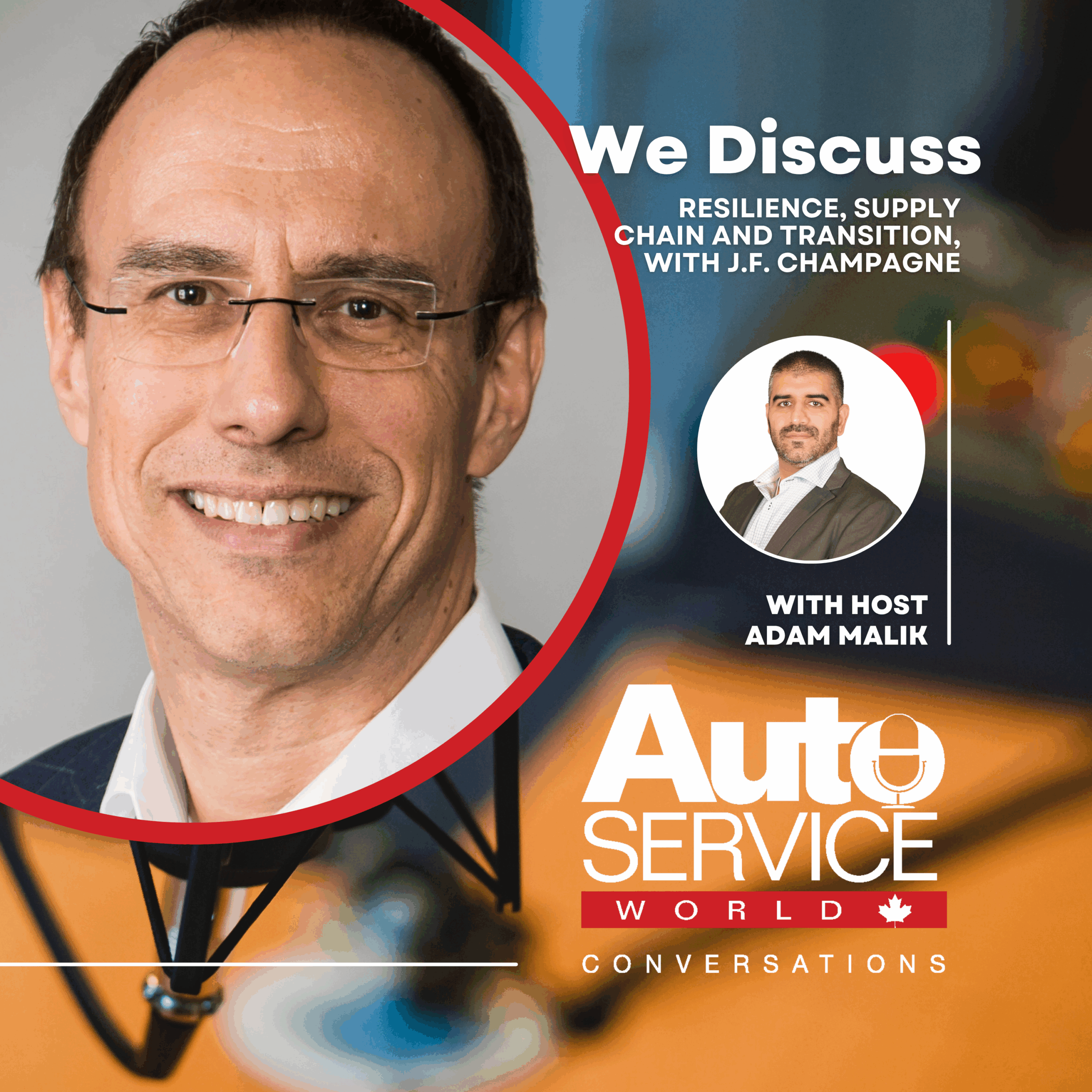ASW Conversations: Resilience, supply chain and transition, with J.F. Champagne
Share
Share

Resilience and adaptability are shaping the automotive aftermarket through a period of uncertainty and change. And though he is preparing for his exit, Automotive Industries Association of Canada president J.F. Champagne is confident about the path the industry has carved out.
He joined Auto Service World Conversations at AAPEX 2205 in Las Vegas to give his final overview of the industry with host Adam Malik in what has become an annual tradition to provide a glimpse of what is taking place in the Canadian market.
“Everyone in the marketplace have had to readjust to some new realities in terms of supply chain, the impact of trades and tariffs,” Champagne said. “The industry is very much a resilient industry. So we’re seeing new ways of doing things, sourcing from different places, reorganizing the supply chain.”
It feels like several years’ worth of happenings rolled up into just one, Champagne observed, as the industry reacts to shifts triggered by political changes south of the border and ongoing global disruptions.
“One year of that change [has] brought a lot of, I will say, uncertainty in the marketplace,” Champagne said.
For many businesses, margins are under pressure and trying to offer product at the right price point has forced both large and small players to explore new ways of sourcing products.
“In these times, sometimes, people will make the parallel to the pandemic: So much uncertainty, hard to plan, trying to react,” Champagne said. “But it creates a bit of winners and losers. People are maybe able to double down and gain market share, create new sources of revenue offerings. And for others, maybe it’s more challenging.
As the world looks beyond right-to-repair legislation — a consistent focus for AIA Canada and its international partners — attracting and training labour has come to the fore.
“How do we attract new people to our industry? How do we properly train and upskill?” he asked. Electric vehicles are another trend, with Champagne recognizing they “are here to stay, and it [is] becoming a greater percentage of the park in some specific markets.”
There was a noticeable decline in foot traffic on the show floor. While official data hasn’t been released, the loss is felt by the international community.
Still, “all the major players have returned. I think again, their approach is very different, because … now they’re really much more in tune in looking at these alternative source[s] of supply,” he said.
This was Champagne’s last visit to AAPEX in his current role. He is stepping down, and Emily Chung has been announced as his replacement.
When looking back on his 10-year tenure, Champagne highlighted inclusivity and progress on right to repair. He also welcomed Chung, offering some advice to his successor.
“It’s not just about the stakeholders. It’s also a board of directors that is central to our strategic direction,” he said. “It’s taking the time to really appreciate, understand the dynamics, the perspective, the motivations of all of these groups before starting to steer the ship.”
Tune into the full discussion. Click the banner above or pick your platform of choice below to hear this episode. You can also access the full Auto Service World Conversations library.
Leave a Reply